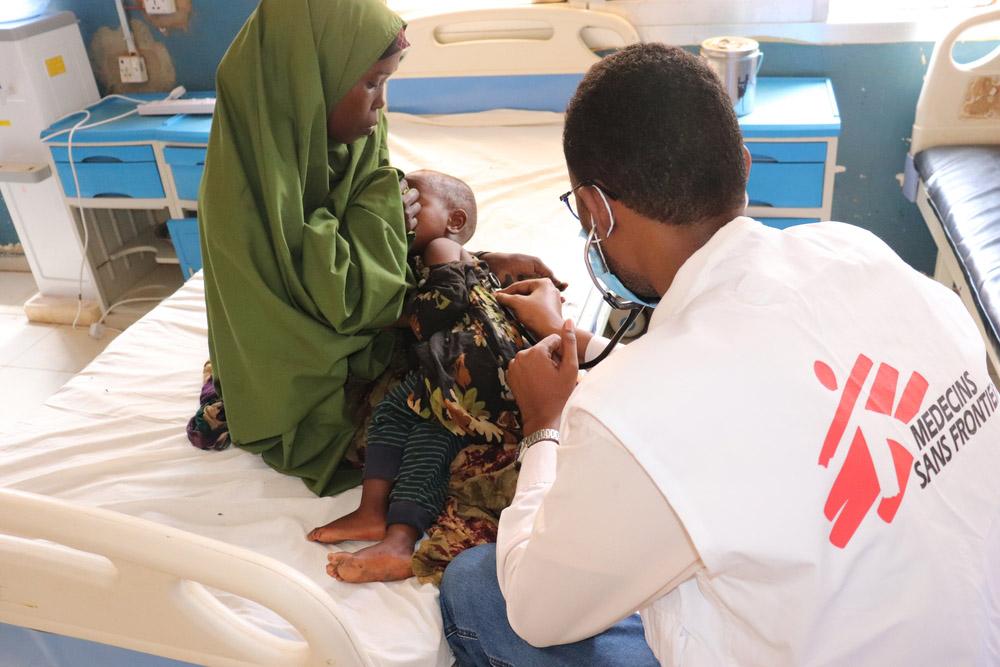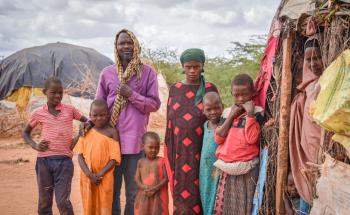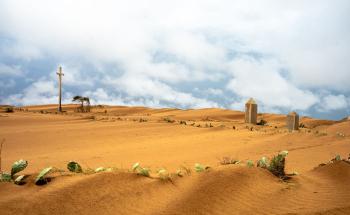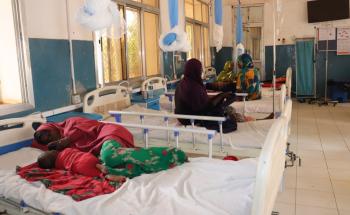Dr Asma Aweis Abdallah is a Medical Activity Manager with Doctors Without Borders (MSF) in Baidoa, Somalia. Here she describes the situation the team is responding to.
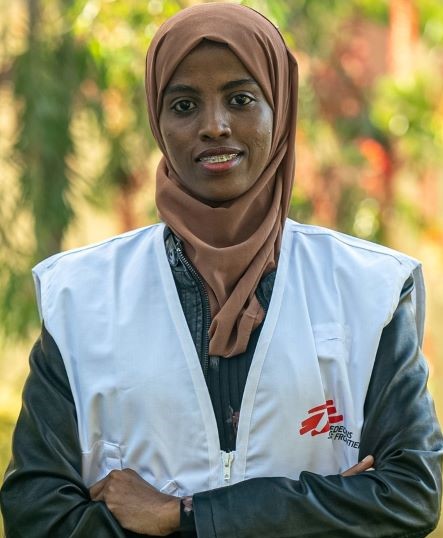
We haven't had enough time between one disaster and another.MSF Medical Activity Manager Dr. Asma Aweis Abdallah
The situation in Somalia is very dire - catastrophic. We are facing one of the worst droughts in 40 years. The country experienced famine in 2011, drought in 2017, and conflict and health emergencies like cholera, measles and malnutrition. This is alongside high maternal and child mortality rates. We haven't had enough time between one disaster and another.
The conflict and the possibility that rains will fail for the fifth consecutive year are the main reasons people are leaving their homes and arriving in Baidoa – they are looking for health and humanitarian assistance. The city hosts the highest number of displaced people in Somalia, second only to Mogadishu.
This year alone, we have received more than 200,000 new arrivals, with some taking long journeys to get here. They do so without proper transportation and face security issues along the way. Until they reach Baidoa, they're going through so much. We see mothers who tell us they have lost babies on the way, but they continue their journey to bring other children for treatment.
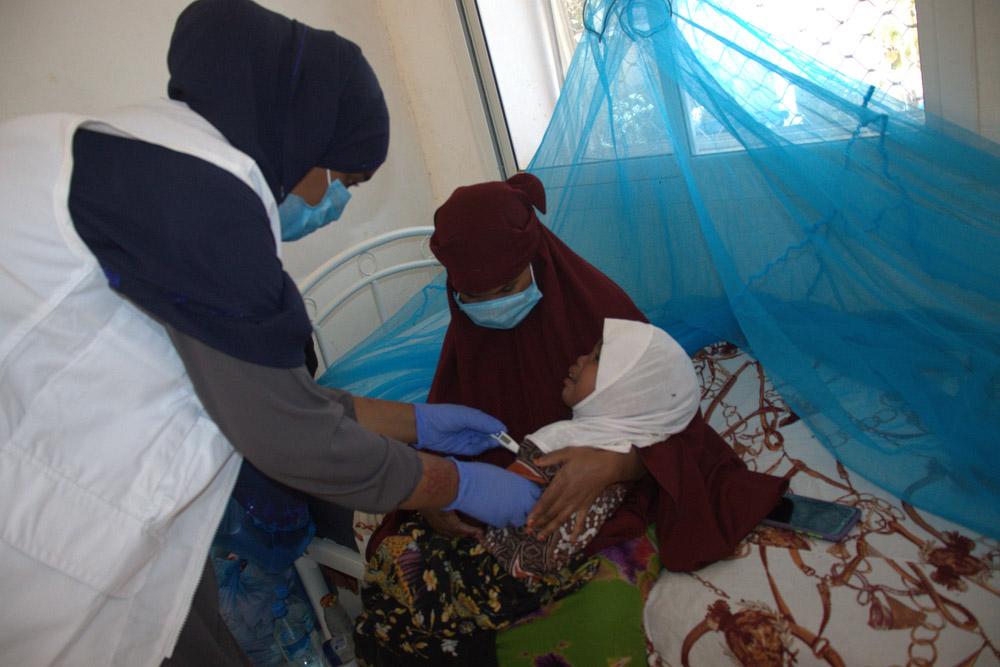
We have witnessed a lot of critical conditions and people going through so much grief and pain. One of the patients I remember is a 23-year-old mother who came in with her child – the mother had measles, and the girl had malnutrition.MSF Medical Activity Manager Dr. Asma Aweis Abdallah
In Baidoa, most of the children we receive are already underweight. Some lose subcutaneous fat and are skin on bone. If this is chronic, repeated again and again, it affects the child's brain development, the child's productivity for the future and in general, the community because children are an asset for tomorrow's generation – all because of inadequate nutrition.
Another thing that malnutrition does to people is to reduce their immune system's response to other infectious diseases, so children who have malnutrition are prone to other health issues. In Baidoa, we see this cycle of people coming in with infectious diseases, then returning for malnutrition or the other way around. There are also a lot of outbreaks attributed to water shortage, climate change and the lack of vaccination coverage for children under 15. It´s increasing the mortality of children.
We have witnessed a lot of critical conditions and people going through so much grief and pain. One of the patients I remember is a 23-year-old mother who came in with her child – the mother had measles, and the girl had malnutrition. Because we don't have adult inpatient care in the hospital, we had this mother who had measles in the paediatric isolation room.
They´d walked 180km trying to find care before they arrived – we could not turn them away. But because they had to travel so far, they already had several other complications by the time they arrived. The child died two days after admission, and the mother died one day later. To witness families leaving the hospital with fewer members is one of the saddest things, but it´s the story of many families because of the impact of malnutrition or other diseases.
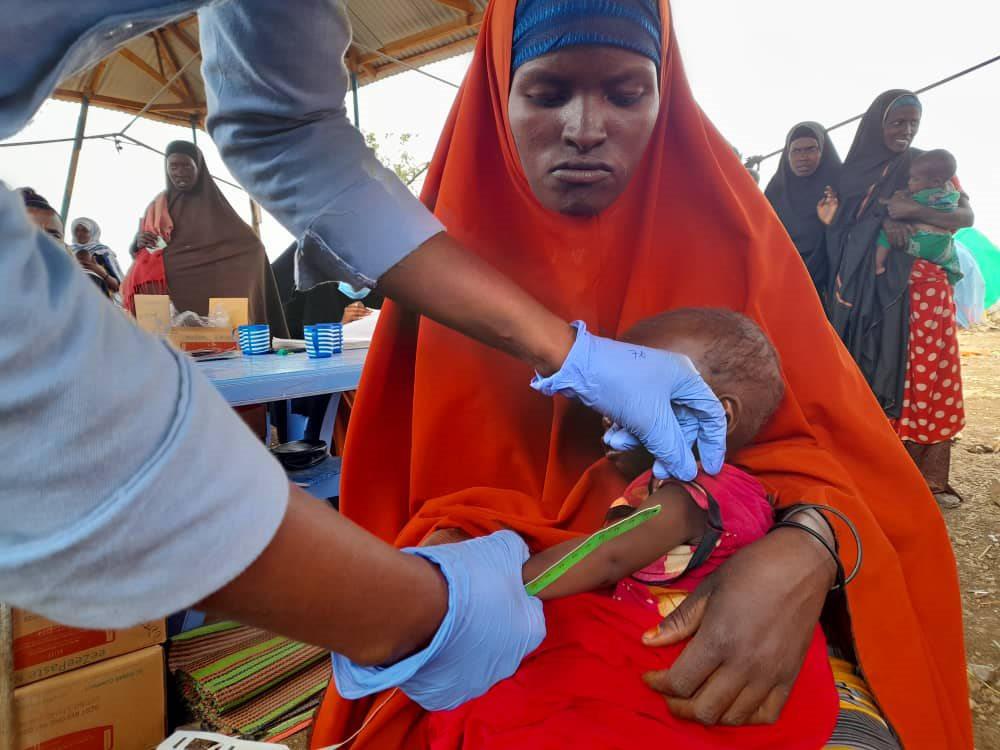
MSF has an emergency programme in Baidoa where we support the regional hospital for paediatrics with an emergency room, outpatient and inpatient services. We also provide sexual and reproductive healthcare, maternity and mental health services. Our outreach programme focuses on health and nutrition services - we admit 500 children each week into our feeding programmes.
We build latrines and bring clean water by truck. After the outbreak, we started supporting a cholera treatment centre. We support around 20% of the population with all these programmes, but the needs are far more than that.
It´s a difficult feeling for everyone, for every human, to witness others going through difficult situations. But being Somali and this being the situation of the Somali community, it makes me feel very sad. But it is something we can alleviate if we all work together to establish the required services for the community.
In Somalia and Somaliland, MSF teams work in hospitals in Baidoa in South West State, Galkayo North in Puntland state, Galkayo South in Galmudug state, and Somaliland in Las Anod and Hargeisa. The focus of our medical activities is maternal, paediatric, and emergency care, nutritional support, and diagnosis and treatment of tuberculosis (TB). MSF also run mobile clinics to deliver care to people living in displacement camps and the surrounding communities.
